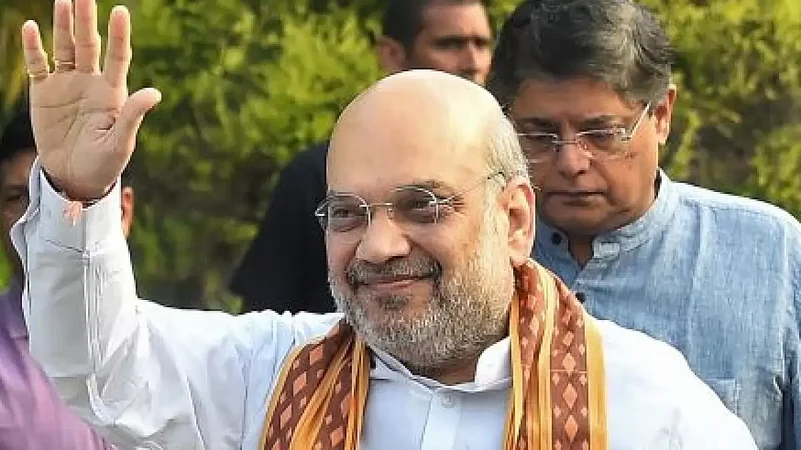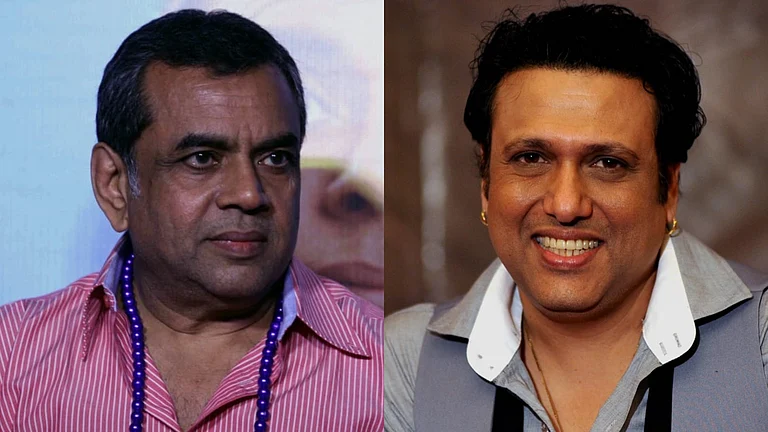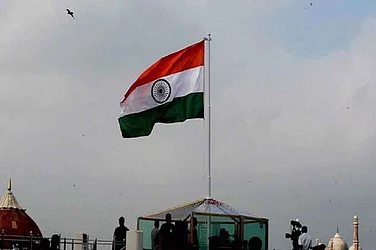Union Home Minister Amit Shah on Thursday said democracy has reached to the grassroots level in Jammu and Kashmir for the first time after the removal of Article 370 of the Constitution from the erstwhile state in 2019 and it has also seen a dip in terror-related incidents.
Shah, in a virtual address at an event at the Gujarat University in Ahmedabad, stated that thanks to various efforts of Prime Minister Narendra Modi, Kashmir is witnessing a drop in incidents of terrorism and stone-pelting today.
He said, "For the first time after the removal of Article 370 and 35 from Kashmir, democracy has reached to the grassroots level there. Kashmir (Jammu & Kashmir) used to have 90 MLAs and six members of Parliament. Today, there are more than 30,000 panches, sarpanches (village level representatives) as well as members of tehsil and district panchayats representing people."
He was addressing students and faculty members of the Kashmir University and the Gujarat University on the occasion of "Kashmir Festival", a cultural event organised here by students of both the varsities.
"There was a time when bomb blasts, strikes, and stone pelting were common in Kashmir. Today, Kashmiri youths are holding books and laptops in their hands. Equipped with new thinking, they are also challenging the youths of the world in the start-up space," said Shah, who is also the Minister of Cooperation.
In August 2019, the Centre bifurcated Jammu and Kashmir into Union territories and abrogated the provisions of Article 370 of the Constitution which accorded special status to the erstwhile state.
"The country is glad to see this transformation brought by Prime Minister Narendra Modi in Kashmir...Kashmir is now witnessing a decrease in incidents of terrorism and stone pelting," said Shah.
Nearly 1.80 crore tourists visited Kashmir last year, said the Union minister.
He maintained that though India is a mix of cultures and languages, it always followed the idea of coexistence and the country's diversity is its strength, not weakness.
"Having diverse languages, cuisines and cultures is our strength, not weakness. But, to preserve that idea, we need to implement on the ground the concept of 'Ek Bharat Shreshtha Bharat' (One India Best India)". That is the reason why Modiji has urged youths of this country to embrace the mantra of 'Ek Bharat Shreshtha Bharat' in their daily lives," Shah said.
"This country has a variety of languages, cuisines and cultures. And, it may seem like a challenge for the world to keep such a diverse country united, but it was never a challenge for India because we always believed in coexistence," he said.
Kashmir is made up of many cultures and is the crown of Bharat Mata, asserted the Union minister.
"Kashmir represents a mix of different cultures. It has Islam, Buddhism, Shankaracharya's teachings and Sufism. Kashmir is made up of many such cultures. Kashmir is the crown of Bharat Mata. The changes currently happening in Kashmir are very important for the children of Kashmir as well as the entire youth of the country," Shah maintained.
Upon learning that students from Kashmir are keen to understand the cooperative model of Gujarat, Shah said it was PM Modi who created a separate ministry for the cooperative sector to connect each and every village with the country's development.


























